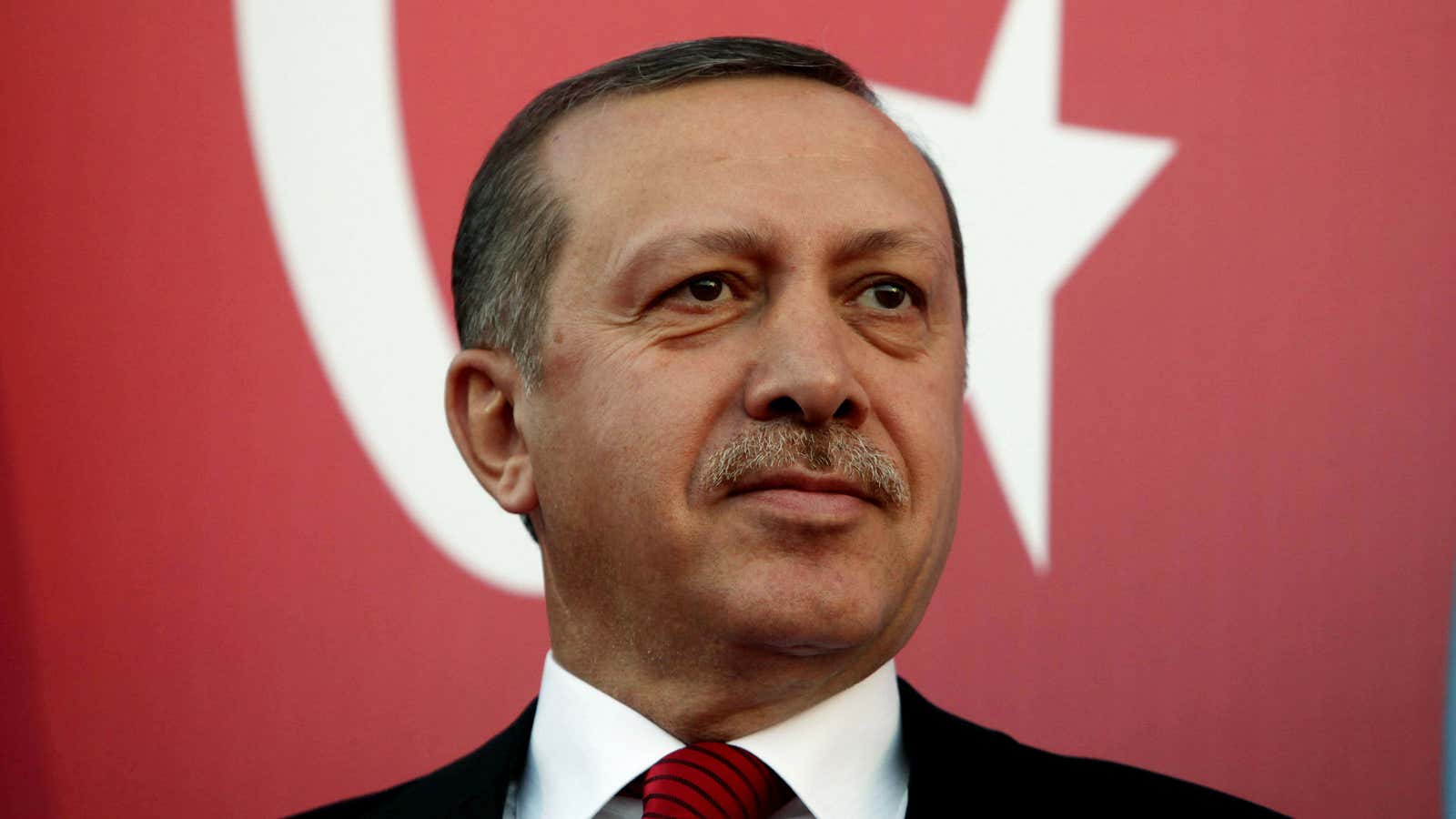Newly sworn in as Turkey’s president, Recep Tayip Erdogan is now a few constitutional amendments from becoming his country’s most powerful leader since Kemal Ataturk. The task of delivering those amendments falls to Ahmet Davutoglu, Erdogan’s longtime foreign minister and now his successor as prime minister.
But as the two men take in the applause from their new, elevated positions, it is worth remembering that they once aspired to something greater: making Turkey a major player in global affairs. Even by the most charitable reckoning, they have failed.
They did come agonizingly close, though. When I first met Erdogan, in the fall of 2011, the Turkish leader was the international man of the moment. He had turned his country into an economic powerhouse, swelling its middle class and creating a new generation of entrepreneurs. (His economic record now looks mixed.)
But he seemed to get greater satisfaction from being an important player on the world stage. He and Davutoglu had crafted a foreign-policy doctrine known as Zero Problems, which envisioned Turkey as having nothing but good relations, in its immediate neighborhood and beyond.
Although ties with Israel had recently become strained, the doctrine was mostly working. Erdogan had just completed a tour of the ‘Arab Spring’ states of Tunisia, Libya and Egypt, where he was greeted like a rock star and many of the young Arabs who had overthrown their tyrants openly talked of adopting the “Turkish model” of Islamic democracy. Turkish economic influence was felt from Central Asia to Africa.
And Erdogan’s importance in the world was underlined by the fact that Barack Obama called him more often than any other world leader: at one point, the American president called just to chat about basketball.
Davutoglu, meanwhile, was being hailed as one of the most important foreign-policy thinkers in the world.
Looking back now, 2011 was the high-water mark for Turkey’s global influence. It has fallen a long way since.
The Erdogan-Davutoglu doctrine has been shredded by circumstances mostly out of Turkey’s control. The Arab Spring yielded bitter harvests in Egypt and Libya—and a bloody one in Syria—and destroyed any chances that Erdogan and Davutoglu would mentor new Arab democracies along the lines of the “Turkish model.”
The relationship with Israel has not fully recovered, despite US mediation. The implosion of Syria has left Turkey horribly exposed: while Erdogan has little demonstrable clout with any of the warring parties, other countries have increased their influence in Turkey’s backyard (Iran, over Bashar al-Assad; Qatar and Saudi Arabia over Islamist rebels).
Turkey has been unable to halt the flow of Islamist militants across its borders into Syria, and many now worry about the traffic coming in the other direction, bringing with it the poisonous influence of the terrorist group calling itself the Islamic State (IS, also known as ISIS or ISIL).
And although Turkey remains keen to join the European Union, hopes of admission into that club have faded.
Even Erdogan’s chummy chats with Obama are now rare, and mostly pro-forma.
Can a president Erdogan and prime minister Davutoglu turn the clock back to 2011? Perhaps if they start with a new doctrine recognizing that, in the foreign-policy arena, their country has Many Problems.




